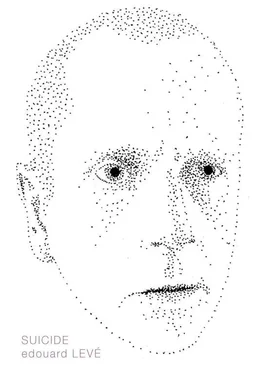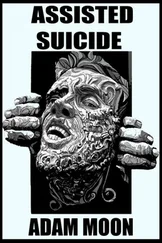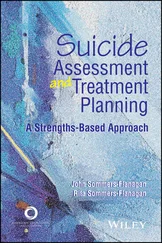Édouard Levé - Suicide
Здесь есть возможность читать онлайн «Édouard Levé - Suicide» весь текст электронной книги совершенно бесплатно (целиком полную версию без сокращений). В некоторых случаях можно слушать аудио, скачать через торрент в формате fb2 и присутствует краткое содержание. Город: Lonton, Год выпуска: 2011, ISBN: 2011, Издательство: Dalkey Archive Press, Жанр: Современная проза, на английском языке. Описание произведения, (предисловие) а так же отзывы посетителей доступны на портале библиотеки ЛибКат.
- Название:Suicide
- Автор:
- Издательство:Dalkey Archive Press
- Жанр:
- Год:2011
- Город:Lonton
- ISBN:978-1-56478-628-9
- Рейтинг книги:3 / 5. Голосов: 1
-
Избранное:Добавить в избранное
- Отзывы:
-
Ваша оценка:
- 60
- 1
- 2
- 3
- 4
- 5
Suicide: краткое содержание, описание и аннотация
Предлагаем к чтению аннотацию, описание, краткое содержание или предисловие (зависит от того, что написал сам автор книги «Suicide»). Если вы не нашли необходимую информацию о книге — напишите в комментариях, мы постараемся отыскать её.
, just a few days before he took his own life.
Suicide
Suicide
Suicide — читать онлайн бесплатно полную книгу (весь текст) целиком
Ниже представлен текст книги, разбитый по страницам. Система сохранения места последней прочитанной страницы, позволяет с удобством читать онлайн бесплатно книгу «Suicide», без необходимости каждый раз заново искать на чём Вы остановились. Поставьте закладку, и сможете в любой момент перейти на страницу, на которой закончили чтение.
Интервал:
Закладка:
You used to want only to perform acts that would resonate for a long time, gestures that, though completed in a few minutes, would leave vestiges to persist and continue to be seen. Your interest in painting depended upon this suspension of time in matter: the brief time of its realization is succeeded by the long life of the painting.
During summer, on the coast, you used to sail a catamaran single-handedly. You tightened the ropes and sailed straight ahead. Why tack to the coast when the waves were the same all over? A straight line suited you. You weren’t preoccupied with an itinerary; you steered the bow toward the horizon, back turned to the coast. You wanted to forget land, but your expeditions were too brief for you to be surrounded by nothing but sea. Air filled your lungs; waves drowned your hearing; the movement of the boat kept your body occupied as it sought balance. The rocking of the waters hypnotized you at the same time as the wind kept you alert. You liked this lucid somnolence, similar to that of a child rocked by a wet nurse singing the melody in a gentle voice that will put it to sleep. Then you would need to turn back. You would come about and try hard to return as directly as you had left, despite the direction of the wind, which compelled you to tack. The sight of land, far away, brought you back to the reality the sea had made you forget. As you drew nearer to the beach, you would leave behind the waking dream the waves had thrown you into.
One night, in a large town in Provence, you walked for three hours at night through the streets at random. You reached a neighborhood devoid of charm, marked off by two large boulevards. Cheap-looking buildings alternated with housing projects, retirement homes, garages, grocery stores, ladies’ hairdressers, and stores selling vacuum cleaners and pet products. A thick odor of frying and of simmering meat escaped from a restaurant cloaked in dirty curtains, where a truck-stop menu was on display. The orange urban lighting ruined the pleasure you would have been able to take in looking at the few villas from a previous century miraculously preserved between two concrete blocks. You came to a small church bordering on a cemetery. The white gravestones, cut off by an entry gate adorned with a large cypress tree, appeared to you as an oasis of calm beauty. You had never before thought to walk in a cemetery alone at night. Guarding against it was your unconscious dread of ghosts. A hook in a stone of the wall and a support high up on the gate decided you. Without reflection you started to scale the wall before thinking about how you would get back out. A car came by; you climbed back down to let it pass. Next came a motorcycle, then another car. While waiting you pretended to be looking at the opening and closing hours of the cemetery on a small plaque. It was two in the morning. You started climbing up again, and in a few movements you were inside the outer wall. You didn’t know whether the cemetery was guarded like the neighboring building sites. Your steps crunched on the gravel. You were not now afraid of ghosts: you had already been thinking about death so often, for such a long time, that they had become quite familiar to you. To see these graves in the penumbra reassured you, as if you had come to a silent ball organized by benevolent friends. You were the only outsider there, the living person surrounded by recumbent statues that love him. The apparition of a guard or a prowler would have disturbed you more than that of a specter. In this vista of stones softened by darkness, your thoughts floated about as though you were between life and death. You felt a stranger to yourself, but intimately acquainted with this place peopled with the dead. You had rarely experienced this feeling: to be already dead. But, looking at the hills unfolding below the cemetery, where lights were shimmering through the windows of houses, you suddenly returned to the land of the living. A survival instinct then guided your steps toward the exit. Some supports allowed you to scale the wall to get out. While coming down on the road-side of the wall, your foot pushed against the cemetery gate, which opened. It wasn’t locked. Access had been freely available: you had climbed over for nothing.
Sun, heat, and light, which delighted those around you, appeared to you as perturbations of your solitude, summons to the outdoors, obligations to joy. You refused to have your euphoria put down to climate. You wanted to be solely responsible for it. If you were asked to do something on account of the good weather, you declined the invitation. Gray weather, winter, rain, or cold did not displease you. Nature then seemed to be in tune with your mood. If the weather was poor, you would be let off the hook, no one would think of reproaching you for not going out. You could stay at your place without the anomalous appearance of your shutting yourself in. No one would come around asking questions about your taste for staying indoors.
You used to say that distinction, which is the opposite of discretion, was too visible a version of elegance. You wanted to be discreet; you were said to be elegant. You would have preferred to be neutral, but your beauty and your stature ensured you were noticed in a crowd. You considered wearing poorly tailored clothing, stooping, making clumsy gestures to efface yourself behind a less desirable façade. But you were afraid that these artifices would themselves be noticed, and would make you seem affected, vain. You therefore resigned yourself to your natural elegance.
In the metro, in Paris, you entered a train car and sat down on a folding seat. Three stations later, a homeless man came to sit next you. He smelled of cheese, urine, and shit. Hirsute, he turned toward you, sniffed several times, and said: “Hmmm, it smells flowery in here.” You had put on a fragrance in the morning before going out. For once, a homeless man made you laugh. Normally such people made you uncomfortable. You didn’t feel threatened, they’d never caused you any harm, but you were afraid of ending up like them. Nothing justified this fear, however. You were not alone, poor, alcoholic, abandoned. You had a family, a wife, friends, a house. You did not lack money. But homeless people were like ghosts foretelling one of your possible ends. You didn’t identify with happy people, and in your excessiveness you projected onto those who had failed in everything, or succeeded in nothing. The homeless embodied the final stage in a decline your life could have tended toward. You did not take them for victims, but for authors of their own lives. As scandalous as it seems, you used to think that some homeless people had chosen to live that way. This was what disturbed you the most: that you could, one day, choose to fall. Not to let yourself go, which would only have been a form of passivity, but to want to descend, to degrade yourself, to become a ruin of yourself. Memories of other homeless people came to your mind. You couldn’t prevent yourself, when you saw some, from stopping to watch them at a distance. They owned nothing, lived from day to day without domicile, without possessions, without friends. Their destitution fascinated you. You used to imagine living like them, abandoning what had been given to you and what you had acquired. You would detach yourself from things, from people, and from time. You would situate yourself in a perpetual present. You would renounce organizing your future. You would let yourself be guided by the randomness of encounters and events, indifferent to one choice over another. When, seated in the metro, you were imagining to yourself what it would be like to live in his shoes, your neighbor stood up, staggering, and left to join a group of drunk homeless people on the next metro platform. One of them was slumped on the ground, asleep with his mouth open, belly up, one shoe undone. He resembled a corpse. This was perhaps what you feared: to become inert in a body that still breathes, drinks, and feeds itself. To commit suicide in slow motion.
Читать дальшеИнтервал:
Закладка:
Похожие книги на «Suicide»
Представляем Вашему вниманию похожие книги на «Suicide» списком для выбора. Мы отобрали схожую по названию и смыслу литературу в надежде предоставить читателям больше вариантов отыскать новые, интересные, ещё непрочитанные произведения.
Обсуждение, отзывы о книге «Suicide» и просто собственные мнения читателей. Оставьте ваши комментарии, напишите, что Вы думаете о произведении, его смысле или главных героях. Укажите что конкретно понравилось, а что нет, и почему Вы так считаете.












